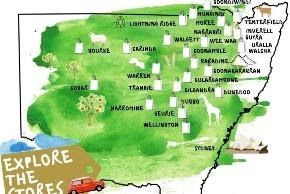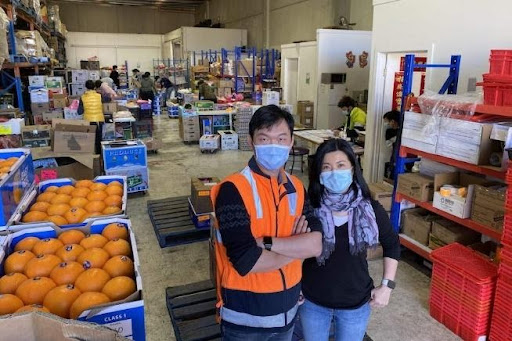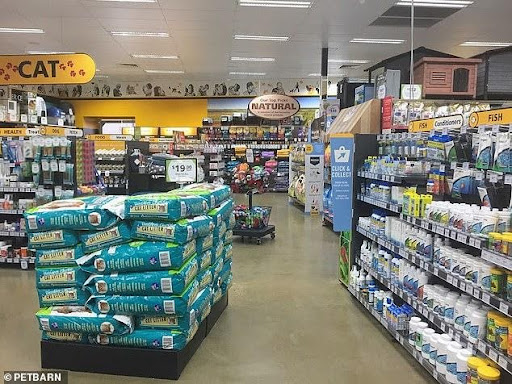The arrival of Covid-19 upended people’s lives! Yet a surprising number of Australian businesses have survived and thrived during the pandemic.
Meet the businesses that have adapted and been successful amid the coronavirus lockdown in Australia including innovative entrepreneurs that have created start-ups which are accelerating.
1. A new era of socially and environmentally conscious manufacturing takes shape

One such business is Buy From The Bush, created by Grace Brennan from her farm in Warren, NSW in October 2019 and featured 275 businesses on the first four months.
The business started as an Instagram account showcasing an availability to buy from rural communities in drought affected towns struggling to maintain their businesses. The social media accounts showcased beautiful rural boutiques and unique wares available from the bush.
With no expectations the account went viral with thousands of Australians following along and using the account as a shopping directory. Businesses who may or may not have had online stores were now given a chance to show off their merchandise in a beautifully curated way, connecting them with thousands of potential new customers beyond their rural communities. Some featured businesses now making more in a week than they had in the year previous.
The idea was simple and initially aimed at the big cities to encourage people there to buy remotely in the lead up to Christmas. Now it promotes a wide range of businesses and products, each chosen to reflect the strength, creativity, and productivity of Australia.
This initiative to promote rural businesses during the drought has helped many to survive the downturn in the bushfire crisis as well as the ominous COVID-19. This direct line between city and country brought social media accessibility to not only the business owners but also as flow on effects to increase the business of local post offices and uplift community spirit.

2. Businesses that survived using the WeChat App

The business Freshchoy’s, a fruit and vegetable wholesale supplier in Mitcham Victoria was struggling to survive when many Chinese restaurants in Melbourne closed their doors temporarily or permanently during the pandemic lockdown restrictions. For Mr Yu, who ran the business, the suggestion of using the WeChat App came at the right time!

Like WhatsApp, WeChat is a social messaging app and available in 17 languages. Using WeChat meant that the struggling business could try selling their produce through the App. Their business took off and went from strength to strength with more than 8,000 potential customers signing up by the customers privately messaging the owner to put in their orders. The produce being sent from the Mitcham Warehouse and now the service has been expanded to 20 suburbs.
3. Businesses that have changed what they sell, from face masks to sanitisers to delivering food and groceries

From restaurants to corner shops some owners have made the switch to change what they sell as their businesses closed in the pandemic. Their motivation being, that doing something rather than nothing was the way to go for some owners even if it was not as lucrative.
A Vietnamese restaurant owner from Victoria, Ann Do asked her family who had a small factory oversees to send her some of the fabric face masks they were making. Not only could she then sell them from her shop to the community but also to educate people to use masks to protect themselves. Selling masks to local shops also helped her recover some income.

During lockdown other businesses like St Ali coffee founder Salvatore Malatesta switched to sanitiser manufacturing, online grocery sales and face mask distribution. He found that their online sales have gone up 10-fold. Not only saving the jobs for his staff but also finding a gap in the market that people needed.

Some delivery drivers have found extra work due to the increased demand not only for food and groceries but also for other necessities such as medicine deliveries to people who are in lock down. An Indonesian owned delivery service called Chainshopper has found that some workers there have seen their income increase by 50% by delivering urgent necessities to people who were under curfew in the inner cities due to lockdown rules.
4. Businesses that have adapted with new start-up food produce

Services that were supplying the food industry, including hospitality, have had their businesses turned upside down. Stock has even been offered back to their suppliers. One business servicing cafes, restaurants and the airline industry knew they had to change their business strategy. Tapping into new markets, even by supplying comfort food online, became a strategy for ‘Crumpets by Merne’ a factory in Sydney’s south with social media advertising playing a big role in attracting new customers.
https://crumpetsbymerna.com.au/
As panic buying swept the supermarkets, shoppers witnessed aisles emptied of toilet paper and basic food, Pet shops experienced a similar demand. More pet companions were bought as Australians sought companionship at home. As Australians stocked up for their pets, cat food, dog food and kitty litter supplies were raided! Pet shops even saw a surge in selling fish tanks as people updated their homes.

The next step for most Pet shops – it was all about maximising the surge in demand, managing stock, and dealing with supply chain disruptions. Sourcing pet food and treats from within Australia became a strategy.
5. Thriving covid-proof businesses supporting the mental health and wellbeing

Essential services have thrived during the pandemic as well as the demand for wellbeing and mental health-related services.
As anxiety and depression spiked during job losses and lockdown, behavioural and mental health providers became in demand. This has created new opportunities for businesses, especially for digital mental health, when visiting a friend or a therapist was no longer an option.

A great number of companies, both start-ups and more established businesses offering therapy, coaching, support, and treatment for conditions such as insomnia or anxiety have been actively encouraged by the Australian government. Increased funding to expand their services needed due to the pandemic have been given to training programs like ‘Counting on You’, which integrates health first training with relationship centered business mentoring.

The Australian Government’s ‘Ahead for Business’ – a digital business hub designed to promote the wellbeing of small business owners, ‘BusinessBalance’- providing a holistic approach to mental health for small businesses and ‘NewAces’ which is designed to support small business owners manage life stress, have been given extra funding to provide initiatives that help small business owners take proactive steps to improve their wellbeing and mental health.
6. A new era of pop ups and exclusive appointments

The key to future-proofing business models is to be scalable and flexible to changing dynamics. Provisions and lockdown plans need to be in place with everything from stock to staffing. Good ideas have come in the form of trends that have been developed in the food and hospitality sector, on top of the takeaway formats that have been a lifeline for many cafes.
In the wake of limited sit-down dining opportunities, lockdown proof pop-up food trucks can strategically set up in towns, markets, and restaurant areas. These new fixtures can operate under lower cost circumstances that are resilient to lockdowns and are becoming popular.

Some businesses have moved towards a set price with bars and restaurants trialing exclusive membership models that enable them to communicate directly with the customers. The flip side of an in house sitting being an exclusive appointment. This idea has previously been for the rich and famous and has now extended to the everyday customer.

In house dining have a set price for less choice but a higher quality menu. Customers pay a set base fee for an experience within the time frame of a pre-booked sitting. Fewer events and less choice on menus help reduce costs and keep the venues going.
7. Which other small companies have survived the pandemic?

Cleaning Services – with the fears about the spread of the coronavirus, professional cleaners have seen a significant demand to sanitise offices, restaurants, medical centres, commercial buildings, homes, and public spaces to keep people living and working there safe.

Game Companies – Game and App developers have done well supplying online entertainment as people have not been able to go out. Board games and puzzles have been popular choices for people who wanted to stay busy at home. In this world of increasing automation, many customers have sought educational video games for children who are not attending school.
8. Exercise anywhere! – Riding high the entrepreneurs bringing fitness home.

Lockdown produced a new demand for home fitness as gyms closed. Supplying treadmills, spin bikes, rowing machines, weights, resistance bands and yoga mats became a rich opportunity for entrepreneurs to bring fitness home. Many fitness equipment companies found that demand skyrocketed.

As Australians grew wary of gym classes they still wanted to work out and feel good when they were at home during lockdown or quarantine. Home gyms were set up and as restrictions lift, with the investment of the fitness equipment will give people the option at least to continue working out at home.

As entrepreneurs seized on the at home gym market, online two-way fitness classes become popular. Workout classes skyrocketed to popularity with new businesses taking advantage of closed gyms and the Australian appetite for fitness.
Influencers on Instagram and Facebook, yoga instructors on Zoom combined favourite trainers with technology and saw Australians subscribing to virtual workouts. Some fitness class instructors hired out equipment to members and even offered one to one workout in an outside space or a park.

Enduring lockdown meant that exercise for stress management became a lever to get people through. Many fitness entrepreneurs scrambled to devise and sell their own Apps establishing a link between physical activity and mental health.

9. Demand for tutoring services

Australia has always embraced private tutoring and home schooling particularly for children living in remote locations who cannot get to a local school.
Brought on by the pandemic and school closures online learning became more in demand. Many class teachers have been overwhelmed with the challenges of setting lessons online and keeping track of their students work increasing the need for additional private tutoring online.

Private tutors and services have needed to adapt to provide services online. For those businesses who were already in the online space and those who migrated well during the pandemic enrolment numbers have increased. One advantage of the switch to online tutoring is that the parents can see what is happening during their child’s tutoring sessions.
Many parents are worried about their children falling behind academically with no face-to-face learning and as society starts re-opening the demand for online tutoring is likely to continue.
10. Home Health Providers and Disability Services
The demand for home health providers and disability services was increasing before the pandemic and now the demand is even higher. Resources and advice for these providers and workers has been needed.
A Covid pandemic resource platform which has support, response packages and information has been made available by the Thriving Communities Partnership (TCP) partners across Australia.

To Conclude
No matter what situation human beings find themselves in we are resilient and have always found a way to adapt. Charles Darwin said that it is not the strongest of species that survives or the most intelligent, it is the ones that are most adaptable to change. Learning from the success of the areas listed above and understanding people’s pain points means thinking of innovative ways to address them.
The fact that so many industries have surfaced thriving, even though others have not seen the same success, provides hope that we will be able to survive the challenges presented by Covid and come out stronger post pandemic. The key for start-up and established businesses is being able to service customers online and offline and being able to navigate any delays in supply issues, trading restrictions and loss of customers.
